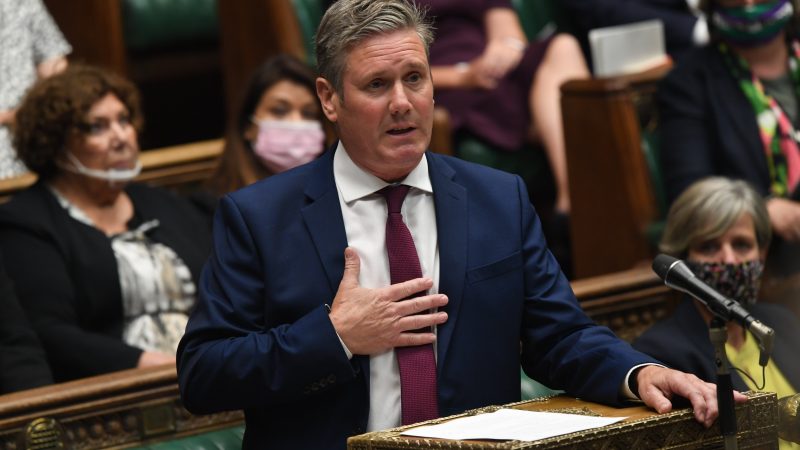
‘One rule for them and another for us’ has been a long-running Labour response to repeated examples of Tories failing to abide by the letter of the law. Though Keir Starmer did not repeat this exact phrase today, his questioning of Boris Johnson during Prime Minister’s Questions focused on the theme. The Labour leader highlighted the various people who had resigned over Covid rule breaking (press secretary Allegra Stratton, government advisor Neil Ferguson, former Health Secretary Matt Hancock) – and the fact that Johnson had publicly expressed support for their resignations, demanding: “Why does the Prime Minister think that everybody else’s actions have consequences except his own?”
In an effort to move away from this dangerous territory, as he so frequently claims MPs and the British public want to do, Johnson suggested that Starmer was in a “Doctor Who time warp”. The two had this conversation yesterday, he protested. But Starmer stuck to his line of questioning: “Does the Prime Minister actually accept that he broke the law?” Johnson said he “humbly” accepted what the police have said, indicating yet again that he does not quite agree with the Met’s decision to fine him. Gesticulating angrily at Starmer, he argued the questions demonstrated the “intellectual bankruptcy” of the Labour Party.
Starmer again appealed to Tory backbenchers’ sense of shame this afternoon, responding to their howls of approval for Johnson by saying: “The party of Peel and Churchill reduced to shouting and screaming in defence of this law breaker.” He argued that Johnson’s apology on Tuesday “lasted for as long as the Prime Minister thought necessary to be clipped for the news”, before he went back to “blaming everyone else”. He highlighted Johnson’s comments about the Archbishop of Canterbury Justin Welby, asking the Prime Minister if he would take the opportunity to apologise for “slandering” Welby over the Church’s response to the war in Ukraine. Refusing to apologise, the Prime Minister accused Starmer of being “a Corbynista in a smart Islington suit.”
Starmer closed the session strongly, arguing that the Prime Minister had delivered a “mealy-mouthed apology” when the cameras were rolling – followed by a “vicious attack on those who tell the truth” as soon as the cameras were off. Broadening the criticism of Johnson’s dishonesty beyond ‘partygate’, Starmer attacked his alleged criticism of the BBC for reporting on the government’s new immigration plan (in which ministers plan to transport asylum seekers to Rwanda), asking: “How can the Prime Minister claim to be a patriot when he deliberately attacks and degrades the institutions of our great country?” A clearly rattled Johnson rejected that he was criticising the press, and said the Labour leader “must be out of his tiny mind”.
The session was something of an open goal for Starmer, and an opportunity to build on the momentum established yesterday. Some of his points landed and it was revealing to see how riled up Johnson got when his patriotism was called into question. His alleged comments to Tory MPs yesterday evening have proved controversial; it is not every Prime Minister who can say they have been accused of making a “disgraceful slur” by the Church of England. But Starmer could have gone harder on his central argument: that Johnson’s behaviour shows that he thinks the rules do not apply to him and that they did not apply to him at a time when members of the public were making heart-breaking decisions to abide by them.




More from LabourList
SPONSORED: ‘Industrial hemp and the challenge of turning Labour’s priorities into practice’
‘A day is a long time in politics, so we need ‘action this day’’
Strong support for child social media ban among Labour members, poll reveals